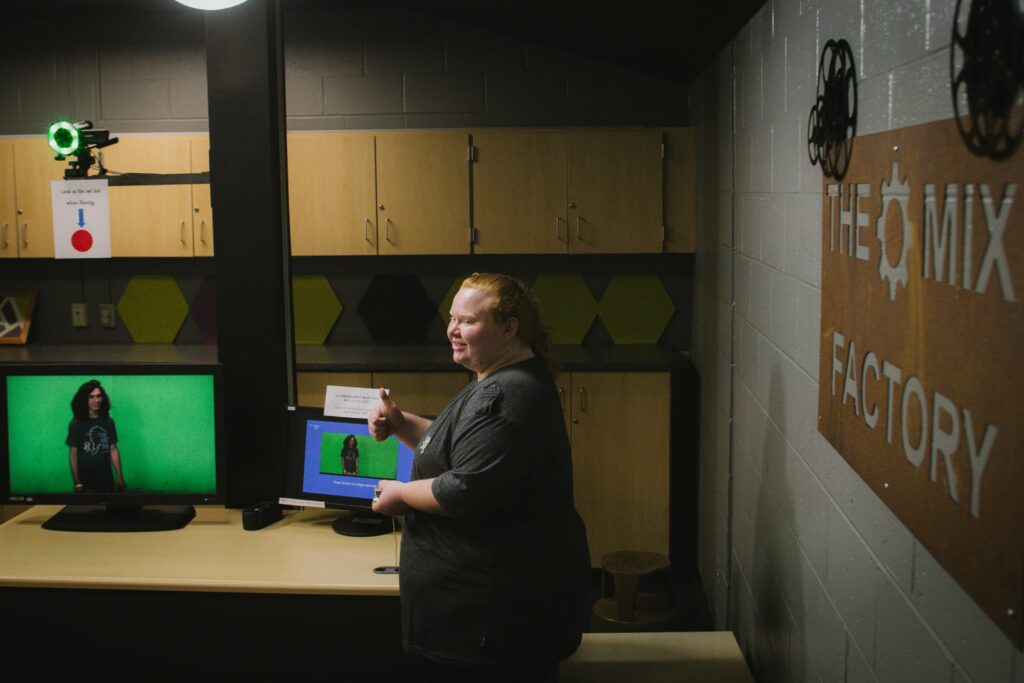It’s hard to imagine, now that every day has become a “digital learning day.” But a decade ago, there was real resistance to the idea that digital technology could ever play a role in educating America’s kids.
On Feb. 1, 2012, during a national town hall meeting held by the Alliance for Excellent Education (All4Ed) to celebrate the first official Digital Learning Day, an ABC-TV reporter asked then-education secretary Arne Duncan a question about digital learning that seems quaint from our pandemic-informed vantage point:
“What happens to the role of teachers in this process?”
Back then, parents and educators were honestly worried that “computers were going to replace teachers,” says Lia Dossin, director of outreach at All4Ed’s Future Ready Schools initiative.
Fast-forward to the Zoom-filled, Google classroom-managed world of today and that question has a very clear answer: Teachers are at the heart of digital learning. Each day they use technological tools not just to teach, but to engage, inspire and forge meaningful connections with students and their parents.
And yet even as the pandemic has dramatically increased the use of technology by American schools, digital learning is in some ways still in its infancy. Educators continue grappling with the best ways to use these constantly evolving tools and they’re eager to learn from one another.
Building A Year-Round Resource
Dossin recently organized the tenth annual Digital Learning Day, celebrated on Feb. 25 this year.
After a decade of this work, she believes it’s still important to “have this day of advocacy.” But in the response to the pandemic and its upending of in-classroom learning, the Digital Learning Day platform has grown into a year-round resource for sharing and highlighting the latest innovations and uses of digital tools.
All4Ed welcomes viewers to the annual Digital Learning Day webinar on Feb. 25. Watch more here.
The All4Ed team is now focused on “providing this network for educators to share in a safe place throughout the year,” Dossin says. Because as digital learning needs and opportunities multiply, “teachers are always going to be looking at changing their pedagogy and meeting students’ needs and being able to see what others are doing.”
Celebrating these kinds of initiatives—and giving educators a place to connect and discuss them—can ensure that busy teachers and school leaders won’t have to reinvent the wheel, Dossin says.
Among the success stories currently featured on the Digital Learning Day website: South Fayette Township School District in the Pittsburgh region introduces basic coding through the Scratch Jr. app as early as first and second grade.
By middle school, South Fayette students move on to text-based coding: Every student takes a Python class. They’re also offered a range of tech-focused electives, along with the opportunity to join a tech science association and enter competitions where they can show their digital learning skills.
Educators can share ideas like this by joining the Digital Learning Day network, which already has more than 2,500 members nationwide, and sharing their favorite digital learning resources with other members.
Connecting Through Conversation
Dossin also points out that educators can connect via Instagram, Twitter and Facebook by following #digitallearningday and joining in the conversation.
The social media community that’s grown up around Digital Learning Day is a great place for “posing questions and being vulnerable,” she says, “and if you have a question or you need something, putting it out there to the network to ask.”
Given all that schools and families have learned and experienced during the past year, the Digital Learning Day team believes that a post-pandemic shift back to the learning environment of 2019 would be a tremendous loss for students and for teachers.
“We would be remiss,” Dossin says, “if we didn’t change our practice to reflect everything we’ve learned. Because there are some good things that have come out of this.”
